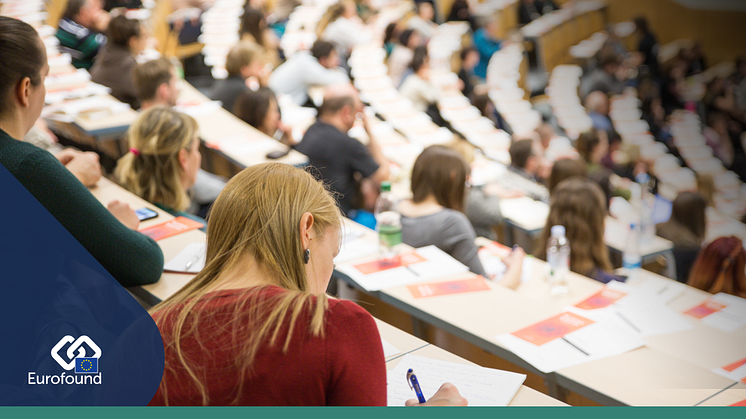
News -
Growth in human capital helping to overcome economic divergence in Europe
Human capital - defined as the knowledge, skills and other attributes that enable people to be productive - played a role in EU convergence in respect of national income over 2014–2021. Specifically, highly educated individuals have helped central and eastern EU Member States and regions to catch up with their western counterparts in terms of gross domestic product (GDP) per capita.
Eurofound’s new report Role of human capital inequalities in social cohesion and convergence examines convergence in human capital – specifically that of individuals with tertiary education – in the EU, analysing three phases: creation, utilisation in the labour market and mobility. The analysis finds that Member States are performing better in creating human capital through education but finds disparities in the other two phases, with differences in labour market opportunities resulting in different mobility flows.
Overall, on indicators of human capital creation, Member States are converging upwards. The share of GDP dedicated to tertiary education, the percentage of early school-leavers, tertiary education attainment, and participation in on-the-job training all moved towards achieving policy targets.
However, there are differences between Member States in the way human capital is utilised, with some better absorbing human capital in the labour market than others. This has translated into an increase in disparities between the Member States in respect of the employment rate of graduates and investment in research and development. On the positive side, the rates of graduates and others who are not in employment, education or training (NEET) or are overqualified for their jobs have fallen; however, at regional level, especially in Greece, Italy and Spain, the EU averages on both indicators remain high.
The balanced circulation of human capital – also known as brain circulation – has not yet been achieved across the EU: some countries and regions are ‘star’ attractors of talent, while others struggle to absorb the human capital they invested in. These latter lose their human capital, and the incoming foreign talent does not compensate for this loss. A conservative cost estimate is that for Belgium and Italy (two countries for which a full calculation was possible), this cost may exceed €10 billion over a decade.
The report notes that an effective way of countering brain drain would be EU-wide emphasis on incentivising the circulation of human capital around Europe rather than retention of talent in the home country, replacing the current situation where national policies compete with each other.
Monitoring talent stocks and dynamics is also important to design policies tailored to attracting specific categories of talent. Granular data at regional level, which EU institutions at various levels have started to collect, are required for this type of analysis.
The report also highlights the role of the social partners in maintaining and creating desirable working conditions for highly educated workers as important for developing and retaining human capital and should not be underestimated, not just in relation to salary but also in relation to issues ranging from on-the-job training opportunities to the availability of state-of-the-art tools for research and development.
- Download the report: Role of human capital inequalities in social cohesion and convergence



